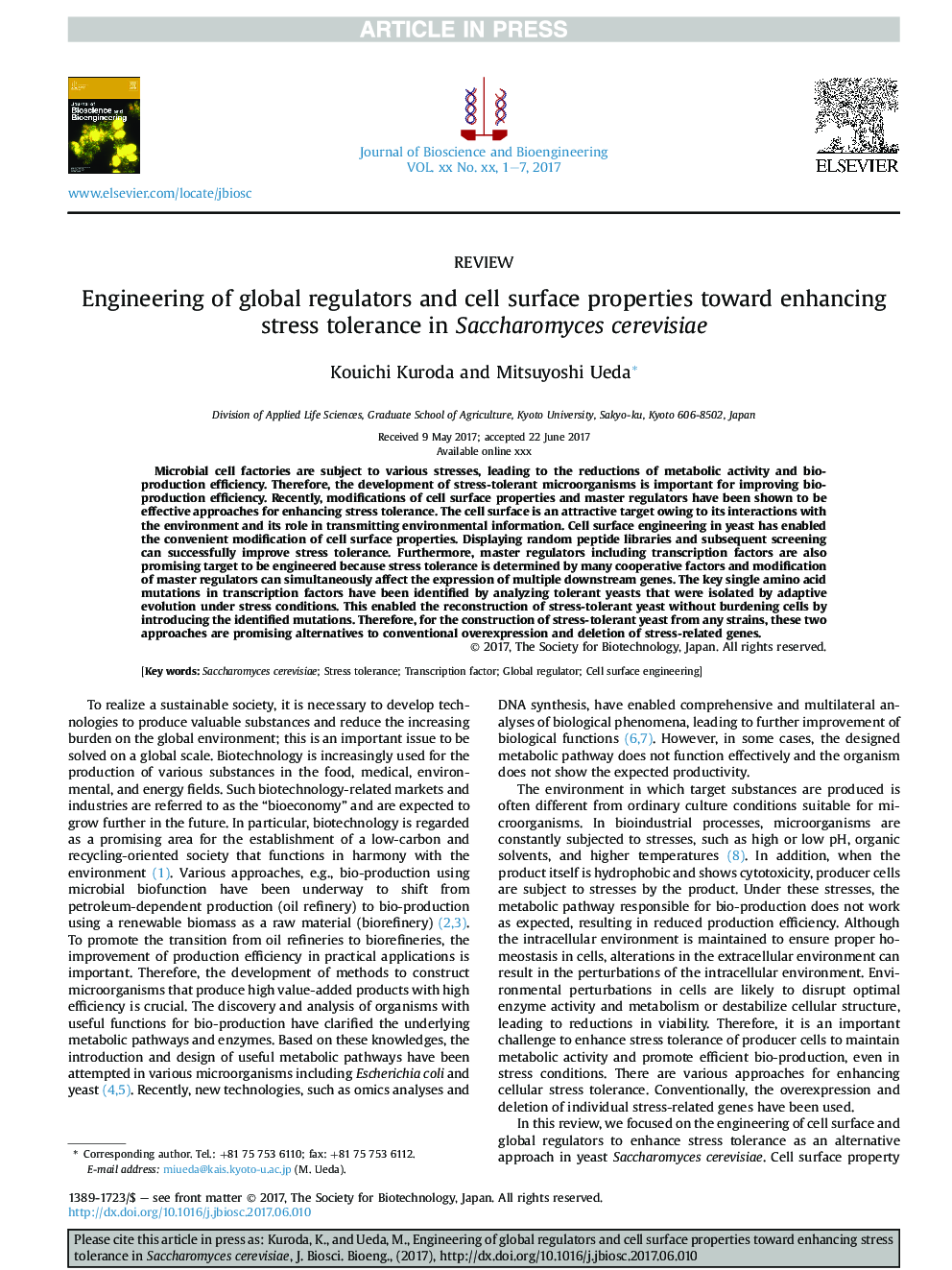| Article ID | Journal | Published Year | Pages | File Type |
|---|---|---|---|---|
| 6490049 | Journal of Bioscience and Bioengineering | 2017 | 7 Pages |
Abstract
Microbial cell factories are subject to various stresses, leading to the reductions of metabolic activity and bioproduction efficiency. Therefore, the development of stress-tolerant microorganisms is important for improving bio-production efficiency. Recently, modifications of cell surface properties and master regulators have been shown to be effective approaches for enhancing stress tolerance. The cell surface is an attractive target owing to its interactions with the environment and its role in transmitting environmental information. Cell surface engineering in yeast has enabled the convenient modification of cell surface properties. Displaying random peptide libraries and subsequent screening can successfully improve stress tolerance. Furthermore, master regulators including transcription factors are also promising target to be engineered because stress tolerance is determined by many cooperative factors and modification of master regulators can simultaneously affect the expression of multiple downstream genes. The key single amino acid mutations in transcription factors have been identified by analyzing tolerant yeasts that were isolated by adaptive evolution under stress conditions. This enabled the reconstruction of stress-tolerant yeast without burdening cells by introducing the identified mutations. Therefore, for the construction of stress-tolerant yeast from any strains, these two approaches are promising alternatives to conventional overexpression and deletion of stress-related genes.
Keywords
Related Topics
Physical Sciences and Engineering
Chemical Engineering
Bioengineering
Authors
Kouichi Kuroda, Mitsuyoshi Ueda,
